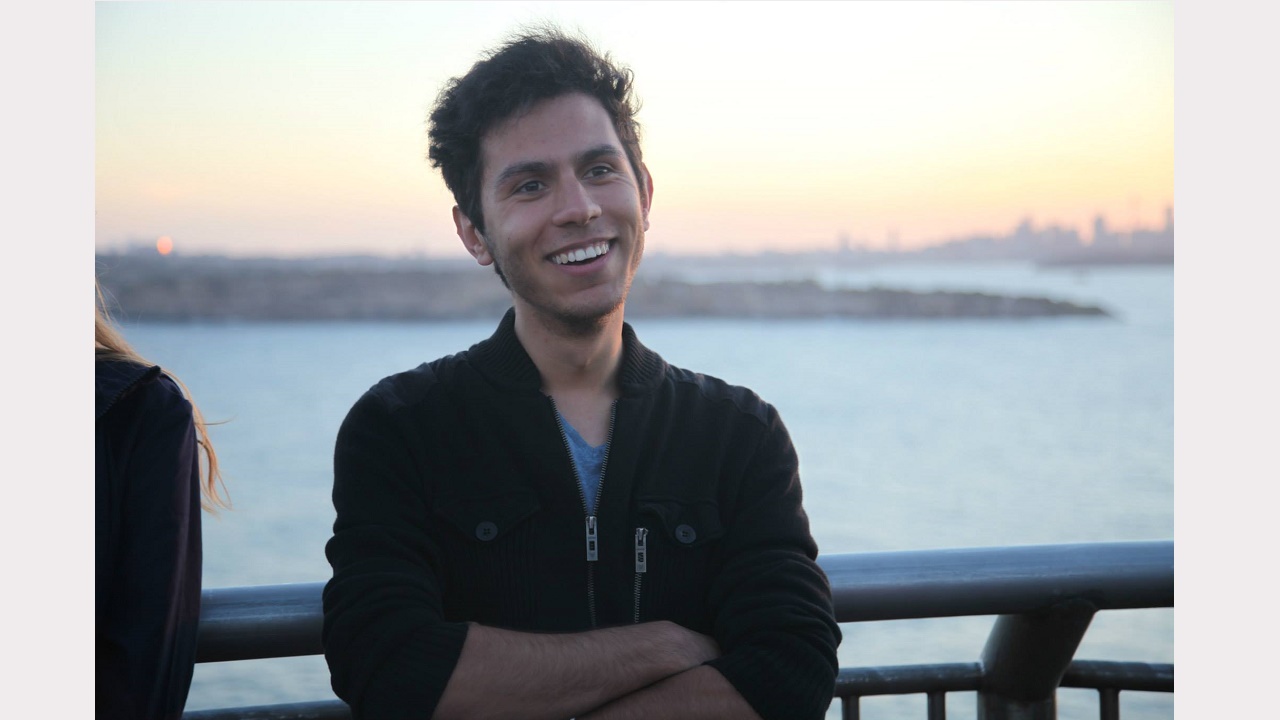Winning haiku shines with wisdom, reflecting value in volunteering
Winning haiku shines with wisdom, reflecting value in volunteering
by Heather Wiseman
Friday, June 09, 2017
The death of his grandfather and a decline in his grandmother’s health inspired 22-year-old student, Joel Raymond, to learn more about death and dying and its impact on other families. Through volunteer work, he has contributed to many patients and families receiving palliative care, gaining insights that shine in his winning poem, crafted for a competition during National Palliative Care Week.
Joel Raymond knew that his grandfather was dying from asbestosis, but the speed with which it happened took him by surprise. The 22-year-old Sydneysider, studying an honours year in psychology, says it was his first experience of a loved one’s death. Only two months earlier, his grandfather was living a fairly normal life.
“It happened so quickly at the end. It was messy; it really took its toll on us as a family,” says Joel.
“We went to visit him at a nursing home and he was really struggling to breathe. We left that night. And then we woke up the next morning and he’d passed away. So we did get to say our goodbyes which was nice but I didn’t expect it to be that quick.”
Working through his grief, Joel was mindful that while the trauma of loss was new to him, it was something that most families – at some stage – would experience.
He saw the impact first-hand on his grandmother. Her husband of nearly 60 years had died within a week of them having moved from their home into residential aged care, leaving her distraught.
“It opened my eyes to how fast things can change, and the things that people who are older end up going through,” says Joel.
“Things happen to people when they are least expecting it, and you somehow have to get on with life.”
His grandmother then moved into Joel’s family home, where he was moved to see how lonely, scared and worried she had become. The experience seemed to have exacerbated her dementia, leaving her to ask the same questions about what had happened every day and relive it over and over.
“I thought those anxieties about the future only existed for people who are younger and then you grow out of them. But they don’t discriminate. They also affect people who have been through a lot. I suppose that got me thinking along the lines of what is happening with other people.”
Debriefing with his mum, who works as a clinical trial nurse for HammondCare Greenwich Hospital, Joel decided to broaden his experiences with a volunteering role. He started at the hospital about 12 months ago, visiting rehabilitation, palliative care and cancer rehabilitation wards.
His first role was pushing the ‘happy hour’ trolley, making drinks and distributing cheese and crackers.
“I really did enjoy that – it was quite rewarding,” Joel says.
“There were a few of us on the trolley, so we could stay behind and talk, and I found that older people have these profound things to say. They always give you this lifetime worth of advice, or in-depth philosophical musings and tell you what is worth pursuing in terms of your life decisions.”
When helping with the 2016 Census, Joel asked one man how many cars he had. The man asked for time to work it out. He looked out the window, counted the cars in the hospital car park, and told Joel he owned thirty-four.
“I said, ‘That’s quite a few. Are you sure?’,” says Joel.
“It was funny, but a bit confronting as well.”
Joel has also spent time having coffee with patients wanting company. He remembers fondly a lady who had Parkinson’s disease and was struggling to write a letter. As she dictated, frequently laughing at Joel’s poor handwriting, he penned the first letter he’d ever hand-written in his life.
“It hasn’t all been about me helping them; I’ve gotten a lot out of it. I like seeing something else through a completely different lens. They grew up in a whole different era to me, and a lot come from different countries.”
“I’ve had to learn how to react to things appropriately as well. One day I walked into a room and there was a lady who must have had facial cancer. You don’t want to react in a way that will make them feel horrible. You need to convey that they are still a valued member of society.”
Sometimes Joel has left volunteering feeling heavy, particularly after patients he’d become close to had died and he was confronted with an empty bed. It was difficult too when patients – out of the blue – became confused and aggressive.
“It is so important not to discount or ignore people who are at the end of their life. They may not remember who they are or where they are but at the same time, they are still a person,” says Joel.
“I think that is why palliative care is so important because we need to acknowledge that while these people are nearing the end of their life that we need to treat them with respect, just as at any other stage in their life.”
That wisdom and compassion is something Joel conveyed succinctly in a haiku poem, which won a UTS competition during National Palliative Care Week. Constrained by the usual rules of a haiku, with a set number of lines and syllables, the poem had to fit the theme “You matter, your care matters. Palliative care can make a difference.”
Joel wrote:
As being may fade
Not yet conquered by time’s curse
A person remains
Palliative Matters thinks Joel is a particularly worthy winner. We invite you to submit your own haiku in the comments below.
